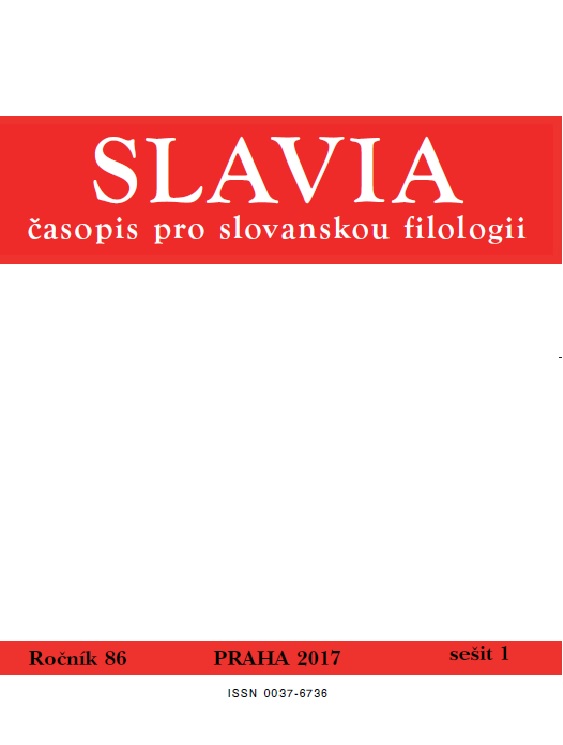K pojmenování ‚medvěda‘ ve slovanštině*
Toward the Designation of ‘bear’ in Slavic
Author(s): Václav BlažekSubject(s): Theoretical Linguistics
Published by: AV ČR - Akademie věd České republiky - Slovanský ústav and Euroslavica
Keywords: Indo-European; Slavic; zoological terminology; onomastics; etymology
Summary/Abstract: The zoonym ‘bear’ in Slavic languages is more differentiated than appears at first sight. The dominant and etymologically transparent term *medvě̀dь ‘honey-eater’ is common Slavic and the only two exceptions, Polabian and Macedonian, very probably represent replacements of the same term *medvě̀dь. The second term in distribution, *mečьka, is attested in South and East Slavic, with possible onomastic traces in West Slavic. The ambition of the present contribution is to offer its “bee”-etymology, contrary to the traditional hypocoristic interpretation. The term *bъrtnikъ is limited to Czech and Slovak in the meaning ‘bear’ and was transferred from the designation of a man seeking honey of wild bees. Finally, the old attempt of Sobolevskij to find Slavic traces of the primary Indo-European term *H2r̥Tk̂o- ‘bear’ is discussed.
Journal: Slavia - časopis pro slovanskou filologii
- Issue Year: LXXXVI/2017
- Issue No: 1
- Page Range: 53-60
- Page Count: 8
- Language: Czech

